SUMMARY
This is AI generated summarization, which may have errors. For context, always refer to the full article.
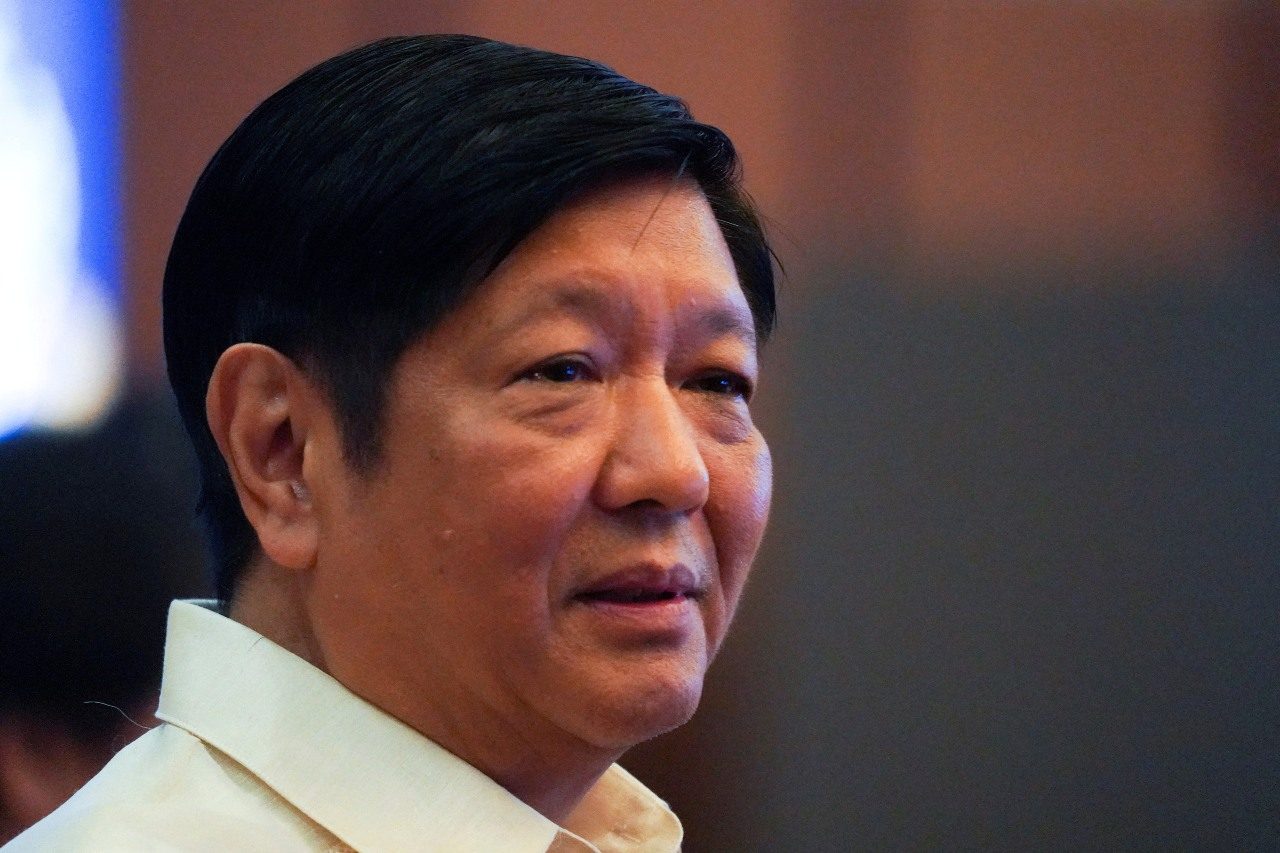
MANILA, Philippines – President Ferdinand Marcos Jr. allayed fears that opening up the Maharlika fund to private investors would facilitate money laundering.
“Yes, private monies will be involved with the fund, but it’s not a savings account that you just put it there and it stays there,” he said during a media interview on Monday, January 23. “Whenever we come into partnership, we do a G2G (Government-to-Government) with Japan, for example, or we do a PPP (Public-Private Partnership) with some big outfit, then that is only the time that the monies come into the fund to be used for the program.”
“Hindi ‘yun basta’t, ‘O sige, bigyan niyo ako ng ilang bilyong dolyar tapos ilalagay lang ‘yan basta akong bahala na diyan (It’s not like, ‘Here’s a billion dollars to put in there, and I’ll leave you to it).’ It’s not like that at all,” he added. “Even on our end, we will only deploy funds when there is a very specific project to be paid for. So, money laundering just won’t come into it.”
Albay 2nd District Representative Joey Salceda previously floated the idea of allowing private investments in the fund through an Initial Public Offering (IPO). According to Salceda, he and three others were commissioned to rework the proposed Maharlika Investment Fund to be more “private-led.” This new version of the Maharlika fund, he said, was what Marcos pitched to investors at the World Economic Forum.
Allowing private investments in the fund would reduce the government’s risk exposure since it would put in less capital, a suggestion that Senate President Juan Miguel Zubiri said the Senate would consider.
“Gusto niya magkaroon ng IPO itong investment fund na ito para sa publiko makukuha ‘yung pondo and foreign investors para lalong lumaki ang pondo at less risk para sa ating government institutions. So, these are the things that we are looking into. Maganda din ‘yung mga proposals na iyan, pero kailangan natin tingnan kung ano ang effect nito sa ating bansa,” Zubiri said in a radio interview with DWIZ on Saturday, January 21.
(Salceda wants an IPO for the investment fund so that the funding comes from the public and foreign investors so that it grows more at less risk to government instutions. So, these are things that we are looking into. These are also good proposals, but we need to see what the effect is on our country.)
No to using GOCC dividends
The revised version would also drop dividends of the Bangko Sentral ng Pilipinas from the fund’s seed capital, opting instead to source money from dividends coming from government-owned and -controlled corporations (GOCCs). Salceda claimed that doing so would ensure that only “real surpluses” were used for the fund.
However, President Marcos has now joined the growing number of voices questioning this proposal. Marcos said that in a meeting, both he and Finance Secretary Benjamin Diokno found that using these dividends would not be feasible, with the President noting that it was “too disruptive.”
“You cannot use funds of the GOCC, pera ng gobyerno ‘yun. What will the government spend? It was a proposal. It’s not something that we have adopted,” said the President.
“Think, every single GOCC has its own charter,” Marcos clarified during the media interview. “You will then revise all of those charters to align with the Maharlika fund. That’s not the purpose of the GOCC, number one. Number two, this is a lot of income that goes to the national government that will … go into the Maharlika fund and cannot be used for the budget of the national government. And we have many things that we would like to appropriate in the coming years, and we will need those funds.”
Senators, who are soon to begin discussions on the bill, have raised similar concerns around the use of GOCC dividends. Zubiri and Senator Sherwin ‘Win’ Gatchalian both cautioned against viewing these dividends as surpluses, saying that redirecting them to the fund would also mean they would no longer contribute to the national budget.
Retired Supreme Court associate justice Antonio Carpio also said that from a legal perspective, the dividends from government corporations can’t be considered surpluses on their own since they are meant to be added to the government’s total revenue.
“Based on the One Fund Concept as written in several laws, the dividends of GOCCs are not surpluses since the dividends are consolidated with all other government revenues to arrive at the total government revenues for the fiscal year, against which will be deducted all the authorized government expenditures under the GAA. The net amount will either be the surplus or deficit,” Carpio told Rappler on Saturday, January 21.
Bill in Senate
Introduced only in late November, the Maharlika fund proposal steamrolled past Congress on December 15, 2022, after Marcos certified it as urgent. The Senate is expected to begin discussions on the controversial sovereign wealth fund now that Senator Mark Villar has filed a counterpart bill.
So far, the Senate bill is identical to the one passed by the House, but Zubiri noted that he expects it to still undergo multiple revisions.
“Unless we adopt the House version na ‘yung walang amendments, anything is possible in the realm of legislation kasi ano pa iyan eh, dadaan pa ng committee level, so yung mga amendments na pinopropose ni Cong. Joey Salceda and Congresswoman (Stella) Quimbo, puwede pa rin ‘yan isama sa committee amendments ng Senate as suggestions from the House of Representatives,” he said.
(Unless we adopt the House version with no amendments, anything is possible in the realm of legislation since it will still pass the committee level, so the amendments proposed by Congressman Joey Salceda and Congresswoman Stella Quimbo can be included in the committee amendments of the Senate as suggestions from the House of Representatives.)
Zubiri estimated that the proposal may clear the committee on banks – which is also chaired by Villar – before the Senate adjourns for the Holy Week break on March 23.
The bill might then be approved following the break, Zubiri said.
President Marcos approved of the speedy timeline given by Zubiri, but emphasized that careful study is still needed.
“In terms of schedule, nag-release ng statement si Senate President na baka by Holy Week matapos na. Maganda ‘yun. That would be good. But, ako sa akin, mas importante na maging tama kaysa maging mabilis,” he said.
(In terms of schedule, the Senate President has already released a statement that it might be ready by Holy Week. That’s good. That would be good. But for me, it’s more important to be correct than to be fast.)
“Ang message ko sa Senado, suriin ninyo nang mabuti para magandang-maganda ‘yung batas natin,” the President said.
(My message to the Senate is to study it well so that the law comes out very well.) – Rappler.com
Add a comment
How does this make you feel?
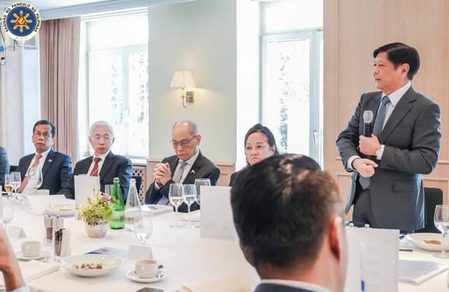
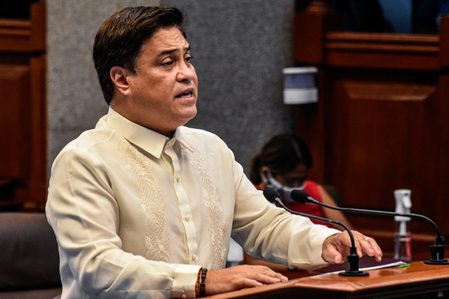
![[ANALYSIS] Maharlika fund: When politics trumps economics](https://www.rappler.com/tachyon/2023/01/tl-maharlika-politics-economics.jpg?fit=449%2C449)

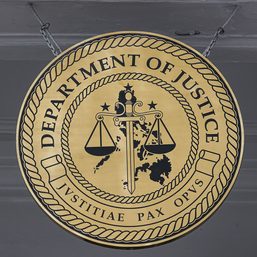
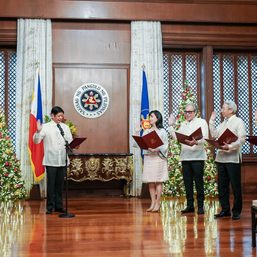
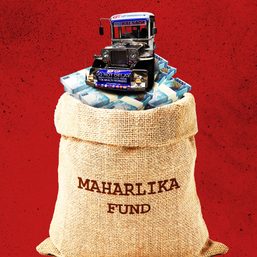
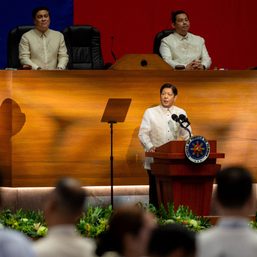
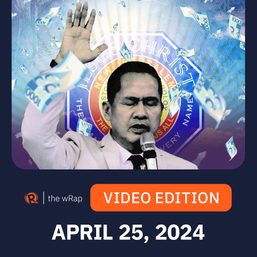
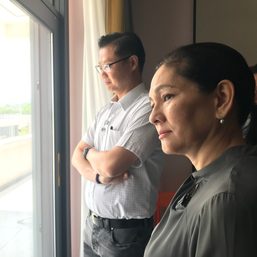
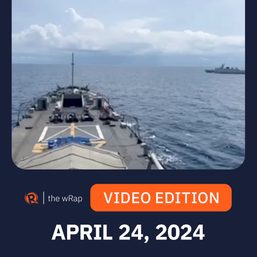


There are no comments yet. Add your comment to start the conversation.